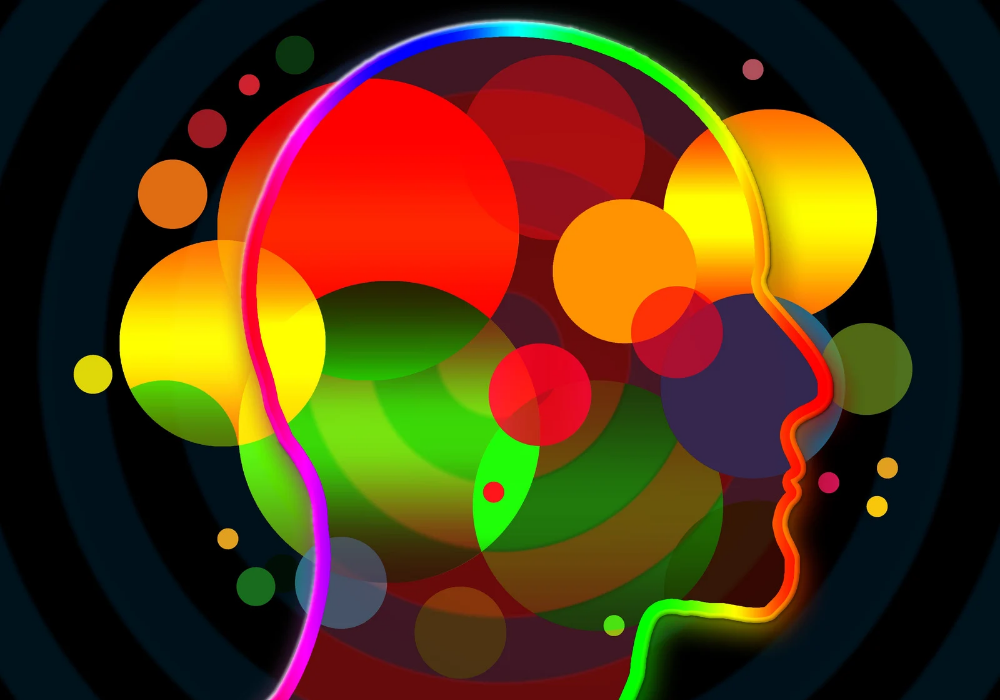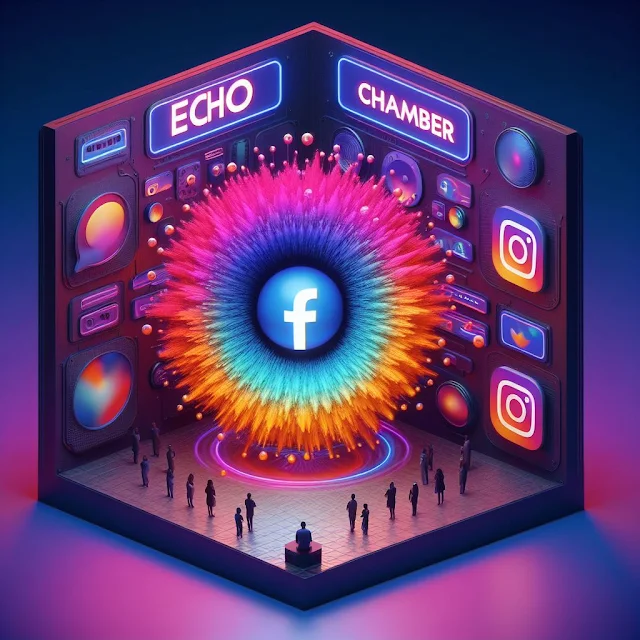
Formation of Echo Chambers:
Selective Exposure: People tend to seek out information that aligns with their preconceived notions. On social media, algorithms often show content based on users' past behavior, creating a feedback loop.Confirmation Bias: When individuals encounter information that confirms their existing beliefs, they are more likely to accept it without critical evaluation.
Homophily: People naturally associate with others who share similar interests, values, and ideologies. This leads to the reinforcement of existing viewpoints.
Social Media Platforms
 |
Social media platforms are significant enablers of echo chambers. Algorithms personalize content based on users' interests and history, leading to selective exposure. Users primarily see information that reinforces their pre-existing views, while dissenting opinions are often disregarded.
» Algorithmic Personalization
Social media platforms use algorithms to tailor content to individual users. If you engage with certain types of posts (e.g., political content), the algorithm learns your preferences and shows you more of the same.Users tend to interact with content that aligns with their existing beliefs. As a result, they see more of it, creating an echo chamber effect.
For instance, feeds on Facebook/Instagram/YouTube can become epistemic bubbles, where users get all their news and political arguments from like-minded friends, reinforcing their existing beliefs.
Facebook, Twitter, and Reddit exhibit varying degrees of echo chamber effects. Facebook's algorithmic personalization leads to higher segregation, while platforms like Reddit allow users more control over what they see.
Effects of Echo Chambers:
Reinforcement: Echo chambers reinforce existing beliefs, making them more entrenched. Users become less open to alternative perspectives.Polarization: When people are exposed only to like-minded opinions, polarization occurs. Extreme views become amplified, leading to societal divisions.
Closed-Mindedness: Echo chambers discourage critical thinking and intellectual curiosity. Users may dismiss dissenting opinions without considering their merit.
False Consensus: Individuals within echo chambers overestimate the prevalence of their beliefs. They assume everyone agrees with them, which can distort reality.
Hostility Toward Outsiders: Echo chambers often foster an "us vs. them" mentality. Those outside the chamber are seen as adversaries.
Resistance to Change: Echo chambers hinder adaptability and growth. New information is filtered through existing biases, preventing learning.
Mitigating Echo Chambers:
Diverse Exposure: Actively seek out diverse viewpoints. Follow people with different perspectives on social media, read varied news sources, and engage in respectful discussions.Critical Thinking: Encourage critical evaluation of information. Fact-check, consider multiple angles, and be open to changing your mind based on evidence.
Media Literacy: Understand how algorithms work and recognize when you're in an echo chamber. Be aware of emotional manipulation and misinformation.
Bridge Building: Engage with people who hold different beliefs. Constructive dialogue can break down barriers and promote understanding.
Remember that echo chambers are natural tendencies, but being aware of their effects allows us to counteract their negative impact.
Like this content? Sign up for our daily newsletter to get latest updates. or Join Our WhatsApp Channel




.jpg)



 IndianWeb2.com is an independent digital media platform for business, entrepreneurship, science, technology, startups, gadgets and climate change news & reviews.
IndianWeb2.com is an independent digital media platform for business, entrepreneurship, science, technology, startups, gadgets and climate change news & reviews.
No comments
Post a Comment